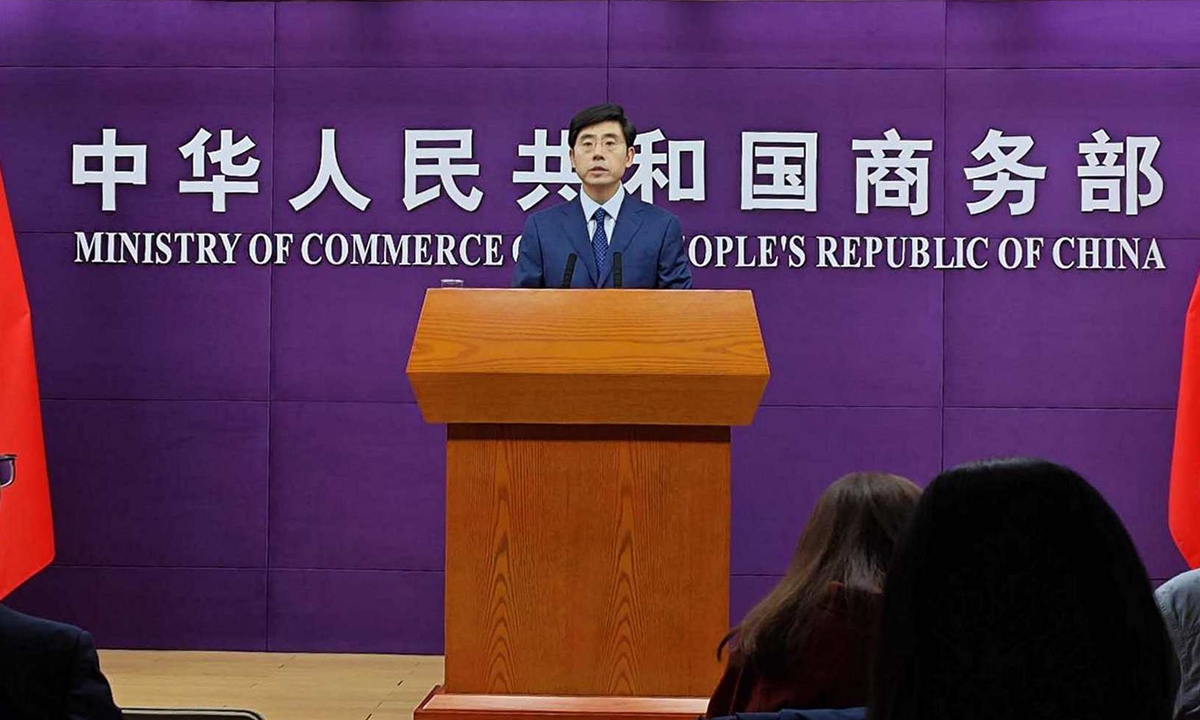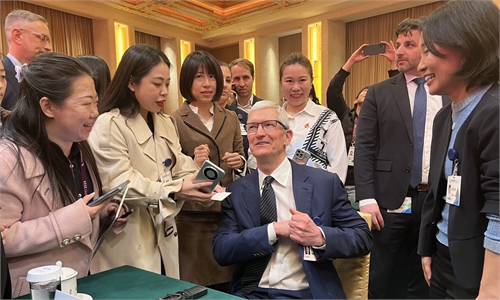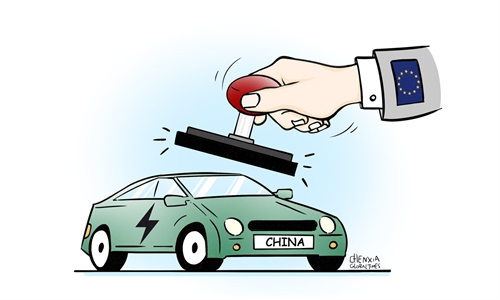EU cannot hold high banner of combating climate change while wielding stick of trade protectionism: MOFCOM

Chinese Ministry of Commerce spokesperson He Yadong at a regular press conference Photo: Yin Yeping/GT
The EU cannot hold high the banner of combating climate change with one hand advocating global green cooperation, while wielding the stick of trade protectionism with the other hand, imposing restrictions on normal green technology trade and investment, Chinese Ministry of Commerce (MOFCOM) spokesperson He Yadong said at a regular press conference on Thursday.
The remarks were made in a response to media questions on the EU's recent decision to probe Chinese wind turbine suppliers to the bloc under the EU's Foreign Subsidies Regulation (FSR), a new tool of economic coercion targeting China.
European Commission Executive Vice-president Margrethe Vestager announced the decision during her visit to the US on Tuesday.
In less than two months, the EU side has launched four investigations under the FSR framework, all targeting Chinese enterprises, sparking concern among Chinese businesses in the EU and affecting the normal business cooperation between the two sides.
In responding to the EU's move, the spokesperson said that the EU's approach violates the principle of free trade and interferes with normal cooperation between China and European industries.
"It is typical protectionism and will seriously affect global efforts to combat climate change and the process of green transformation, damage the confidence of companies from various countries to invest in the EU, and weaken China-EU mutual trust," He Yadong said, expressing the strong dissatisfaction and firm opposition from the Chinese side.
Chinese wind power and other new-energy enterprises have achieved rapid development, gaining a competitive advantage, and are in a leading position globally, relying on continuous technological innovation, a well-established production and supply chain system, and intense market competition at home, which cannot be fostered by any subsidy, the spokesperson said.
The Chinese new-energy industry is dedicated to providing high-quality products for global climate change mitigation, making positive contributions to green transitions worldwide, including the EU.
While advocating green cooperation, the EU's embrace of trade protectionism undermines normal international green trade and investment, adopting double standards in climate change response, the spokesperson said, warning that such actions may obstruct a global green transition, disrupt two-way China-EU investment, and undermine mutual trust.
As the global green industry thrives, there is vast potential for China-EU green cooperation. He said that China hopes the EU will abandon protectionist practices and return to the path of win-win cooperation, providing a stable, fair, transparent, and predictable competitive environment for green cooperation between Chinese and European companies, making green technology the cornerstone of China-EU economic and trade relations.
Meanwhile, China will closely monitor the EU's future actions, reserving the right to take necessary measures and firmly defending the legitimate rights and interests of Chinese enterprises, the spokesperson noted.
In recent times, EU has intensified trade protection efforts toward China, notably through launching investigations into electric vehicles made in China. Additionally, the bloc has lately aligned with the US, pointing fingers at China's production of affordable electric vehicles.
In a meeting with Martin Lukas, director general of the trade defense department of the European Commission, in Brussels on Wednesday, the head of the Trade Remedies Bureau of the MOFCOM slammed the EU's planned probe into Chinese wind turbines, saying the investigation distorts the subsidy definition, lacks transparency, and is protectionist behavior that harms fair competition.
Global Times


